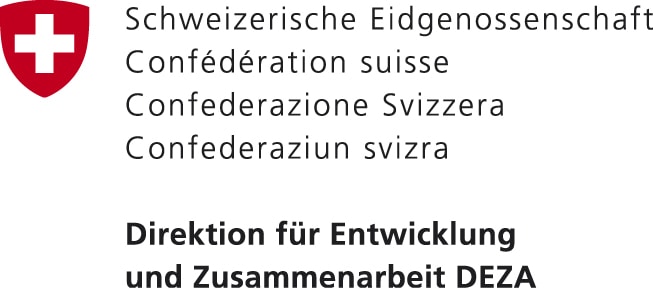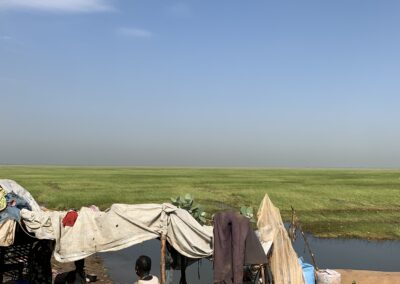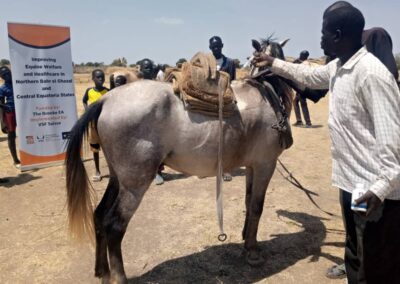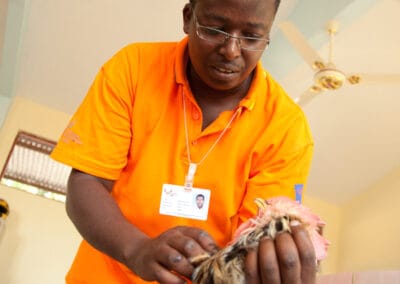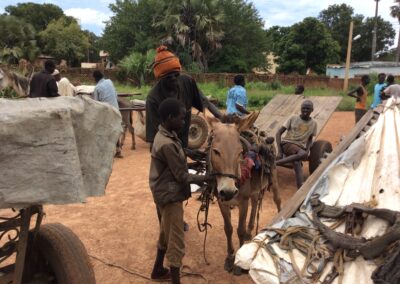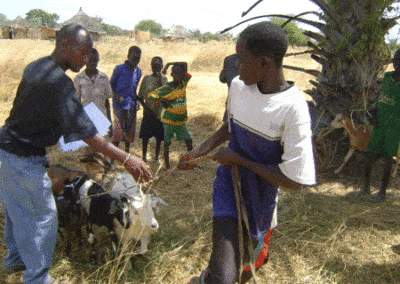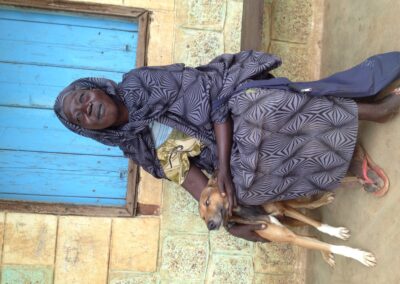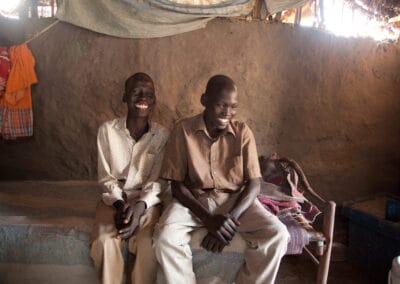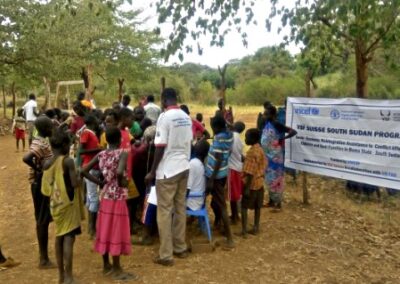Improving food security, livelihoods and protection of agro-pastoral communities
Project Overview
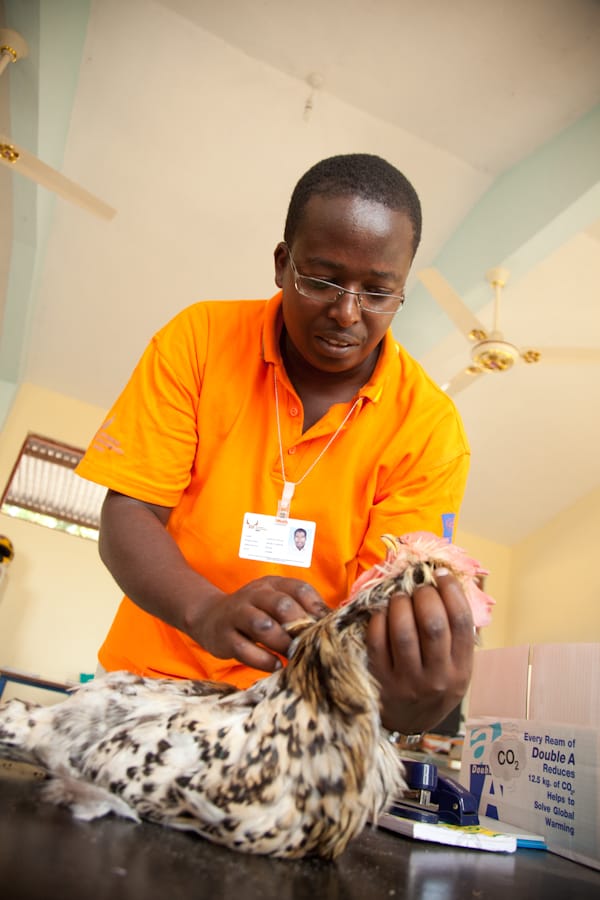
Country
South Sudan
Project name
PROWIGA II + III
Project status
Active
Duration of the project
Start: |
15.07.2020 |
End: |
14.07.2025 |
Budget
CHF 2’180’000
Project area
Topics
Tags
Background
The main parties to the 2018 Revitalized Agreement for the Resolution of conflict in South Sudan (R-ARCSS) finally formed the South Sudan’s Transitional Government of National Unity (T-GONU) on 22nd February 2020, marking the start of a 36-month transitional period that will end with national elections. The formation of the T-GONU has raised hopes for the over 1.5 million and, 2.5 million South Sudanese Internally displaced persons (IDPs) and refugees respectively, to return to their home of origin and start rebuilding their lives and livelihoods. In the country, some 7.3 million people are facing problems related to their physical and mental well-being as a result of impact of a variety of man-made and natural disasters.
South Sudan and its people continue to suffer from the impacts of years of conflict, violence, limited development investment, poor production, pests and diseases, climate induced disasters, poor macro-economic policies, dwindling oil revenues and market disruptions all of which have conspired to condemn a big portion of the population to a spiral of hunger and destitution. Though rich in natural resources, the country’s human development indices are among the worst in the world, Nearly half of all counties (78) have high needs related to food insecurity, protection, and water, sanitation and hygiene (WASH), education and health among others.
According to recent UN studies and reports, food insecurity is the main driver behind the number of people in need. Nearly 6.4 million people or 54 per cent of the population were acutely food insecure in August 2019, the number reduced to 5.29 million (45.2% of population) in January 2020 and set to deteriorate again to 6.01 million people (51.4% of the population) in April and further to 6.48 million people (55.4% of the population) at the peak of the lean season in July 2020. The prevalence of global acute malnutrition (GAM) among children increased from 13 per cent in 2018 to 16 per cent in 2019, exceeding the global emergency threshold of 15 per cent. According to the report cited above, more than 1.3 million under-five year children are projected to be acutely malnourished in 2020. Several studies have shown that the needs are closely interrelated across sectors, e.g acute malnutrition is attributed to the persistent high food insecurity, poor quality and diversity of food, low water quality as well as high morbidity due to a weak health system.
The IPC released in February 2020 suggests that immediate scale-up of humanitarian assistance is needed to save lives and avert total collapse of livelihoods in the affected counties particularly those with populations in Catastrophe (IPC Phase 5) and Emergency (IPC Phase 4). The situation could be made worse if the recent formation of T-GONU leads to high volumes of returns to locations most of which lack basic services required to accommodate increased survival demand.
Project
The project aims to improve food and nutrition security and income opportunities among targeted vulnerable populations. The following is an overview of our activities:
- We support households to adopt hybrid poultry production techniques to improve food and nutrition security and income opportunities.
- We provide refresher training for community animal health workers (CAHWs) and poultry health support workers, including veterinarians.
- We are improving livelihood protection by providing animal health services for 150,000 farm animals.
- We procure various veterinary medicines, supplies and equipment that support the cost-based delivery of animal health services.
- We improve livelihoods and income.
- We promote the psychosocial and mental health/wellbeing of children and their families/caregivers, protect their rights and enhance the capacity of community-based support mechanisms to respond to and deal with threats and promote peaceful coexistence.
- We promote hygiene, social distancing and other measures to contain Covid-19.
The programme is supported by the Swiss Agency for Development and Cooperation SDC, Federal Department of Foreign Affairs FDFA.
Which of the 17 UN Sustainable Development Goals does this project work towards?




